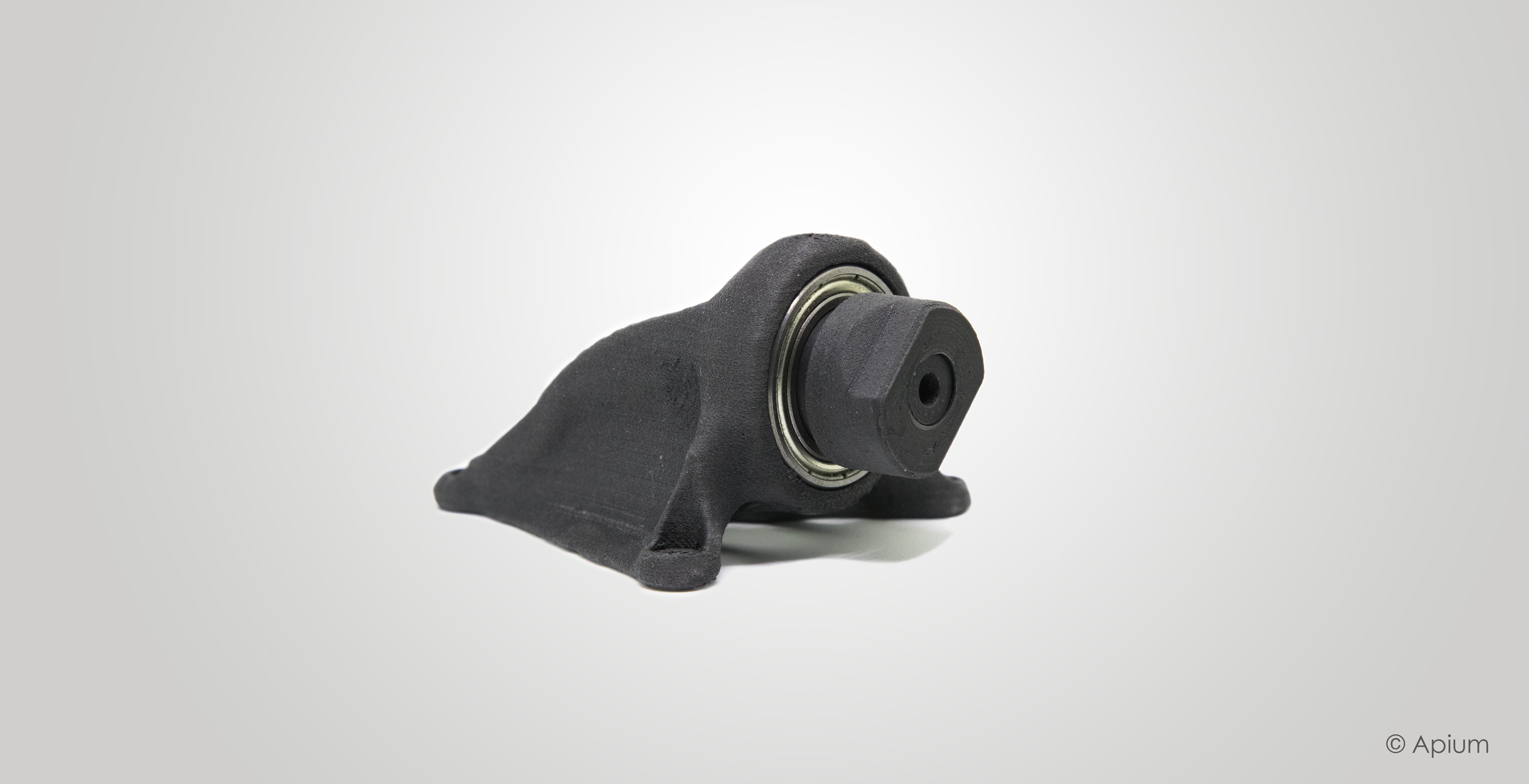Topology Optimization and our Apium P Series bring your product development to a new level
Recently, topology optimization has become increasingly important as a versatile design and development method for lightweight construction. The typical fields of application range from automotive construction to aerospace technology to other branches of mechanical engineering.
Goals of topology optimization:
- Stress-optimized design
- Reduced component mass
- Optimized stiffness and natural frequency

In many cases, topology optimized parts have more organic and complex geometry with same functionality. As conventional manufacturing technologies are not designed for such geometries, additive manufacturing as a complementary production technology enables a design driven manufacturing process to produce optimized parts. Additive manufacturing offers a high degree of design freedom, small series production at reasonable unit costs and a strong individualization of products
Apium’s research and development team has dealt with this topic and carried out a number of tests. Using Apium’s P-Series 3D printers, you can benefit from the capabilities of their unique FFF 3D printing technology for high performance polymers in combination with topology optimization for an accelerated product development.


In Figures 1 and 2, a conventionally designed bearing seat as well as a topology optimized bearing seat can be seen – both manufactured in our Apium P155 printer. The optimized part offers considerable weight reduction and shorter production time compared to conventional design without sacrificing the “original” stability.
As topology optimization in combination with additive manufacturing offers great benefits, good results can be assured if the problem or the load is sufficiently known. Components which are optimized for a specific case can no longer withstand a load when the force introduction point changes. For a successful topology optimization, it is therefore important to recognize in advance all the risks of a possible component failure. This requires sufficient experience.
One way to assess the risks during the development process is to carry out tests on prototypes. Additive manufacturing methods such as the Fused Filament Fabrication (FFF) process can be used for rapid prototyping, which can play out its advantages with topologically optimized components. Short-term changes to your prototype can be quickly adapted using the 3D printing technology and can be reprinted with lower costs.
This synergy between additive manufacturing and topology optimization has been indispensable especially with the concept of Industry 4.0 and has become an important component in product development when it comes to material efficiency and sustainability.
Contact our team to use Apium`s advanced technology for your functional prototypes or small series end use parts and implement the advantages together with topology optimization.
Discover the possibilities of additive production with high-performance polymers to secure advantages for your company.

